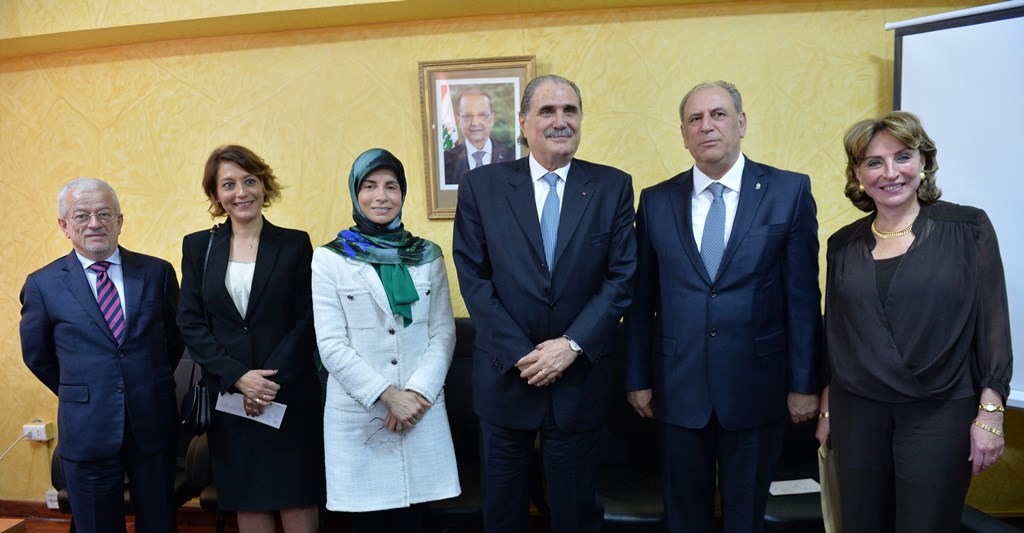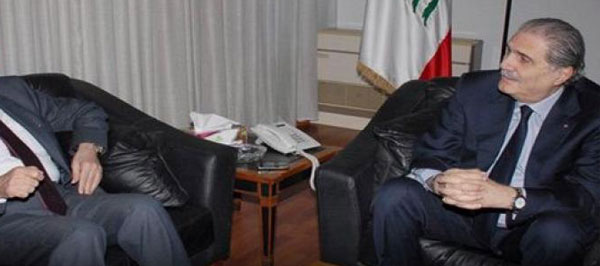MINISTRY DEPARTMENTS Back
Committee of Legislation & Consultations
The Committee of Legislation & Consultations was created in 1949 to constitute one of the units of the general directorate of the Ministry of Justice. It is currently organized by the Ministry of Justice law issued by the legislative decree number 151 on 16/09/1983 and amended by the legislative decree number 23 dated 23/03/1985. The committee accomplishes annually more than 800 consultations and plays an imminent role on the consultation and legislative levels.
Bodies of the Committee
The President
The committee of legislation and consultations is chaired by a judicial judge of seventh grade at least or administrative judge of an equivalent grade and he is appointed by virtue of a decree taken by the Cabinet upon proposal of the Minister of Justice.
Assistant Judges
The committee contains judicial and administrative judges who assist the president in the preparation and the drafting of consultation, each in his domain, and they will be appointed by virtue of a decree adopted at the ministers' council upon the proposal of the Minister of Justice.
Assistant Jurists
The assistant jurists handle the tasks of working out the consultations and searching for the references upon the request of the president of the committee. They are appointed by virtue of a decree upon the proposal of the Minister of Justice among the judicial assistants holders of the Bachelor’s Degree at Law or those working in the departments of cases and consultations in the ministries of the state and those holding the above mentioned bachelor’s degree or among the candidates who successfully passed the competition effectuated for the same diploma.
Administrative Employees
Court Department: The court department handles the reception of formalities – application for advisory consultations – and their registration with a special register under a serial number according to the date of its outgoing in preparation to its delivery to the Directors General.
Court ushers : The court ushers ensure the correspondences to the department and other units of the ministry, accomplish the photocopying and stationary from the department and arrange the files according to serial basis.
Draftsmen : The draftsmen handle the task to ensure all the activities related to the typing and the activities of the secretariat.
Tasks
The Committee of Legislation & Consultations handles:
Work Procedures in the Committee of Legislation & Consultation
Important cases presented to it by the Minister of Justice.
High-profile cases in which the Cabinet is requested to issue an opinion by the supreme committee of consultation.
Bodies of the Committee
The President
The committee of legislation and consultations is chaired by a judicial judge of seventh grade at least or administrative judge of an equivalent grade and he is appointed by virtue of a decree taken by the Cabinet upon proposal of the Minister of Justice.
- While reserving the authorities of the Director General, the president of the committee is considered as the direct administrative president of its employees and practices towards them all the authorities granted to the director by the law according to the laws and regulations.
- The president takes in charge the issuance of the advisory opinions and its ratification after that he drafted it or assigned one of his assistants to draft it at his responsibility.
- He is member of the supreme advisory committee but he does not participate in the case referred to him if the opinion is issued by him.
- The president is related to the direct competent administrations in all the matters related to the activities of his committee and he can request all what would enable him to accomplish the activities of the committee.
- The president participates regularly in the study of projects and the draft laws presented to the Ministers and he attends the meetings of the competent parliament committees.
- The president is entitled to delegate some of his authorities to his assistants upon the approval of the Minister of Justice and for a limited duration.
- The president organizes an annual report which he submits to the Minister of Justice through the Director General and encloses him with the remarks and proposals that he deems adequate.
- The Minister of Justice is entitled, by a decision he takes, and in the absence of the president of the committee, to delegate one of the judges of the ministry to dispose of the activities of the committee.
- The current president of the committee of legislation and consultations is Judge Choukri Sader.
Assistant Judges
The committee contains judicial and administrative judges who assist the president in the preparation and the drafting of consultation, each in his domain, and they will be appointed by virtue of a decree adopted at the ministers' council upon the proposal of the Minister of Justice.
Assistant Jurists
The assistant jurists handle the tasks of working out the consultations and searching for the references upon the request of the president of the committee. They are appointed by virtue of a decree upon the proposal of the Minister of Justice among the judicial assistants holders of the Bachelor’s Degree at Law or those working in the departments of cases and consultations in the ministries of the state and those holding the above mentioned bachelor’s degree or among the candidates who successfully passed the competition effectuated for the same diploma.
Administrative Employees
Court Department: The court department handles the reception of formalities – application for advisory consultations – and their registration with a special register under a serial number according to the date of its outgoing in preparation to its delivery to the Directors General.
Court ushers : The court ushers ensure the correspondences to the department and other units of the ministry, accomplish the photocopying and stationary from the department and arrange the files according to serial basis.
Draftsmen : The draftsmen handle the task to ensure all the activities related to the typing and the activities of the secretariat.
Tasks
The Committee of Legislation & Consultations handles:
- The preparation and drafting of projects of laws, decrees, organizational decisions, publications, projects of conventions and international agreements he is requested to draft, to give opinion and propose amendments that it deems adequate.
- The presentation of suggestions to the Minister of Justice concerning the amendment and the innovation of legal texts.
- The interpretation of the legal texts.
- The consultation in state-related works and contracts and in all conflicts arising from the administrations of the state or between them and with third party.
- All other matters and legal tasks assigned to it by the Minister of Justice.
- The consultations in legal matters proposed to it by the Director General of the Ministry of Justice.
- The consultation in conciliations made by the state and the institutions before bringing the lawsuit if its value exceeds ten thousand Lebanese Pounds.
- The delivery of custom certificate To Whom It May Concern to present it outside the official departments.
- Proofing the Lebanese Law with regard to specific issues upon the request of the foreign authorities.
Work Procedures in the Committee of Legislation & Consultation
- The opinion request will be deposited to the general directorate of the Ministry of Justice and will be registered with the department and then referred to the committee of legislation and consultations and will be registered in the department of the court.
- The head of the department of the court immediately refers every request for opinion that the committee receives directly without passing through the general directorate.
- The president of the committee verifies during the ten days following the referral of the formality to him by the Director General. If he considers that the consultation needs additional information, he can get into direct contact with the concerned administration or to ask for the consultation of the employee designated by the administration.
- The president of the committee will give an advisory opinion concerning matters that include the consultation and he will be assisted in that by the judges of the committee and he signs the consultation with everyone who participates in its working out.
- The president submits the advisory opinion with the whole file to the Director General and registers the formality with the department.
- The Director General will give his examination and he is entitled to agree upon the opinion or opposes to it in whole or in part. And in the first case, he refers the whole formality to the concerned administration.
- And in case the Director General objects the advisory opinion issued by the president of the committee, he may request the reconsideration of the matter after stating the reasons, and in case he insists on it, the Director General will have to refer it before the Supreme Committee of Consultation.
- The supreme committee of consultation is headed by the Director General of the Ministry of Justice and the membership of the President of the Committee of Legislation and Consultations, the president of the Committee of Cases and the president of the Institute of Judicial Studies. And it considers the following matters:
Important cases presented to it by the Minister of Justice.
High-profile cases in which the Cabinet is requested to issue an opinion by the supreme committee of consultation.
- And in the last case, the president of the Council of State will join the committee as well as two jurists appointed by the cabinet and headed by the Minister of Justice.
- The opinion is issued by the supreme committee unanimously or by the majority and in case of equal votes the president will have the casting voice.
- The president of the Committee of Legislation or the president of the committee of cases does not participate in the case referred to the supreme committee of consultation if he is the one who delivered the opinion.
- The supreme committee of consultation finally states and notifies the administration only of the final text of the consultation without the breach that may took place during the vote and which may be registered separately.
- The administration will not be bound by the opinion but its contradiction should occur by a justified decision; a copy of which will be notified to the Ministry of Justice.





